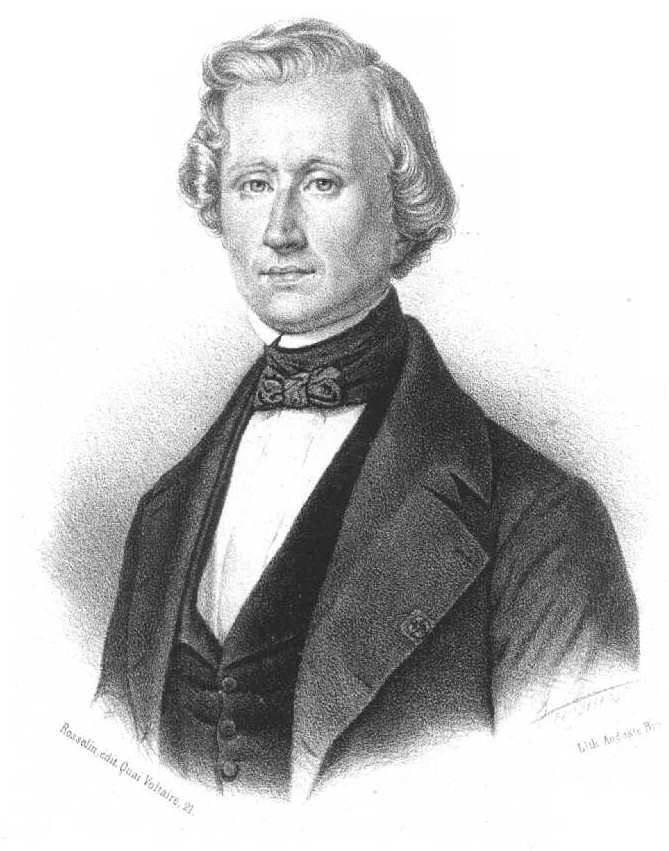 In 1821, the French astronomer Alexis Bouvard published astronomical tables of the orbit of Uranus, calculated using Newton's laws of motion and gravitation. Subsequent observations of the planet revealed a deviation from the expected position. To explain this deviation, Bouvard hypothesised the existence of an eighth planet.
In 1821, the French astronomer Alexis Bouvard published astronomical tables of the orbit of Uranus, calculated using Newton's laws of motion and gravitation. Subsequent observations of the planet revealed a deviation from the expected position. To explain this deviation, Bouvard hypothesised the existence of an eighth planet.During the 1840s, two mathematician-astronomers started work independently on the problem of deducing the position of this eighth planet: an Englishman called John Couch Adams and the Frenchman, Urbain Le Verrier [pictured]. In 1845, Adams twice called on Astronomer Royal George Biddell Airy to inform him of his solution. Since Airy was absent both times, Adams left a manuscript containing his calculations. Airy sent a letter to Adams requesting clarification on a number of points, but Airy did not reply.
In August 1846, Le Verrier announced to the Académie des sciences in Paris that he had calculated the position of the eighth planet. The following month he sent a letter to Johann Galle at the Berlin Observatory predicting the position of the planet. On 23rd September 1836, Galle received the letter and that evening he and his fellow astronomer Heinrich d'Arrest used the Berlin Fraunhofer refractor to check Le Verrier's prediction. They found the planet within one degree of the calculated location.
Le Verrier strove the have the new planet named after himself, but this choice achieved little acceptance outside France. He had earlier proposed the name Neptune, after the Roman god of the sea. This name soon achieved widespread acceptance and has remained so to this day.
Related posts
Pluto discovered: 18th February 1930
Foundation stone of Royal Greenwich Observatory laid: 10th August 1675
Also on this day in history
Nintendo founded, 1889

It baffles me that astronomers could find these celestial beings with mathematical equations. Incredible really.
ReplyDeleteIt is also amazing that they can find planets in other solar systems using mathematical equations today,
ReplyDeleteThanks for leaving a comment.